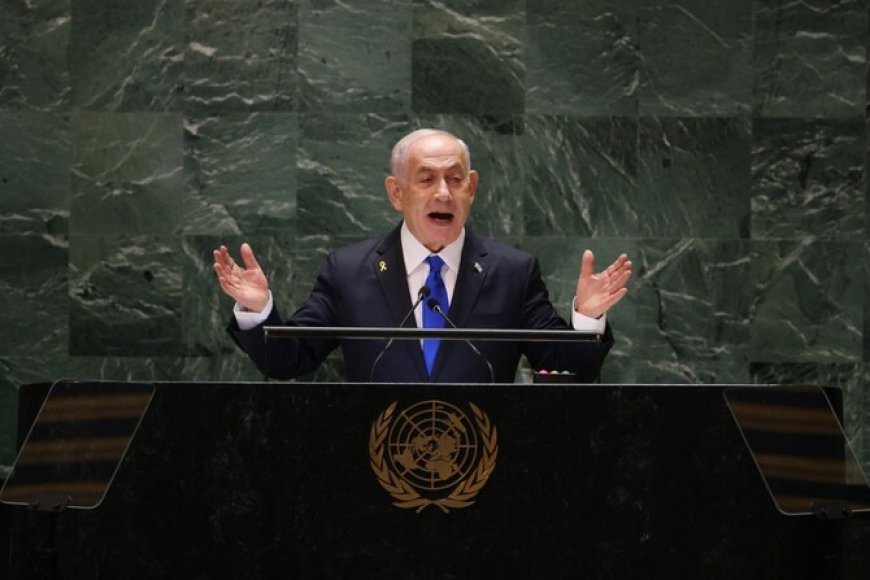Israel's UN Relationship: A New Low Among Constant Conflict
Israel's already tense relationship with the United Nations has dropped to hitherto unheard-of lows in recent weeks, accompanied by a storm of accusations and a challenge of its very membership inside the agency. This escalation corresponds with the terrible results of the continuous conflict in Gaza, which has driven the UN to classify Israeli activities as possibly genocidal—a word Prime Minister Benjamin Netanyahu strongly objects against.

Israel's already tense relationship with the United Nations has dropped to hitherto unheard-of lows in recent weeks, accompanied by a storm of accusations and a challenge of its very membership inside the agency. This escalation corresponds with the terrible results of the continuous conflict in Gaza, which has driven the UN to classify Israeli activities as possibly genocidal—a word Prime Minister Benjamin Netanyahu strongly objects against.
Netanyahu attacked the world body during his speech before the UN General Assembly on September 27, 2024, calling it a "anti-Semitic swamp" and charging it with systematic unjust treatment of Israel. Reflecting the great frustration Israeli leaders feel over the worldwide community's scrutiny, he said, "until this anti-Semitic swamp is drained, the UN will be viewed by fair-minded people everywhere as nothing more than a contemptuous farce."
The war raging in Gaza, which got more intense following Hamas's lethal strikes on October 7, 2023, has driven friction between Israel and several UN institutions. Claims of genocide have repeatedly been denied by Netanyahu's government, which contends that the characterizations serve a more general anti-Israel goal. Following Hamas's first attack, which claimed the lives of more than 1,200 Israelis—most of them were civilians—Israel started a counter-military operation that has claimed terrible losses in Gaza, with estimates of over 41,500 deaths, mostly civilian.
UN comments have been pointed and critical. Many resolutions and declarations from UN agencies and authorities have denounced Israel's armed operations and questioned the legality of her occupying of Palestinian territory. Referring to the long-standing Israeli occupation of Palestinian territory, UN Secretary-General Antonio Guterres attracted criticism from Israeli officials when he observed that Hamas's strike "did not happen in a vacuum."
The Israeli ambassador to the UN in Geneva, Daniel Meron, said that Israel feels deceived by the UN, therefore attesting to the declining ties. Allegations against UNRWA, the UN organization helping Palestinian refugees, which Israel alleges has gotten involved in prolonging the conflict, have further inflamed the environment. After claims that some of UNRWA's staff members participated in the October 7 attack, the agency has suffered major financial cuts and increasing pressure to change its policies.
The criticism directed to UNRWA has been especially strong; Netanyahu argues for its replacement by groups he says will provide more conscientious relief to Palestinians. Concurrent with this, Francesca Albanese, the UN's independent rights specialist on the Palestinian territories, speculated that Israel's actions would result in its classification as a "pariah" state, therefore casting doubt on its future inside the UN.
Critics of Israel contend that its long-standing disrespect of UN resolutions has resulted in a culture of impunity, therefore empowering its acts and complicated the circumstances even more. As Professor Riccardo Bocco of the Geneva Graduate Institute pointed out, Israelis believe they operate above the West as it does not hold Israel responsible for its non-compliance with international law.
Reflecting these ideas, UN rights office spokesman Ravina Shamdasani said that the Middle Eastern crisis's lack of responsibility has made the engaged parties "more brazen." She underlined as unacceptable reaction to the humanitarian situation the worrisome trend of more attacks on UN personnel and facilities.
Experts fear that Israel's disrespect of UN principles could compromise the legitimacy and power of the institution itself as tensions rise. Pedro Arrojo-Agudo, the UN expert on the right to drinking water, issued a warning: the continuous disrespect for UN rulings seriously jeopardizes the future survival of the UN. "If we do nothing, we are blowing up the United Nations."
As both sides negotiate this hazardous terrain, the circumstances keeps changing. The demands for responsibility and justice reverberate louder, underlining the critical necessity of a diplomatic end to the long-standing conflict that respects the rights and humanity of everyone engaged, with growing casualties and widening differences.













































